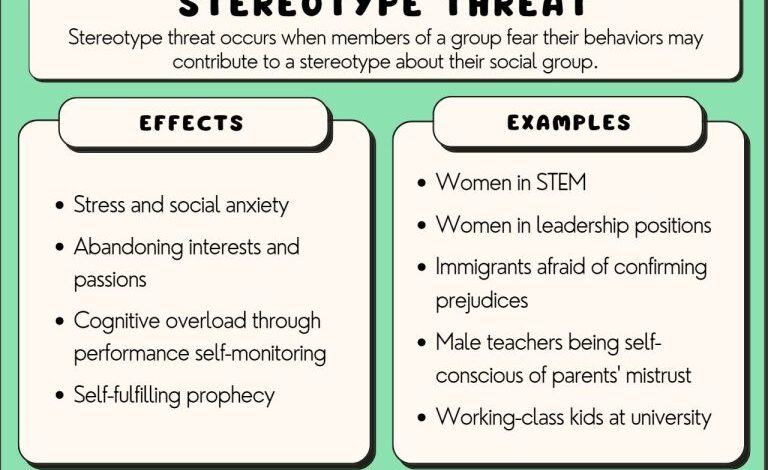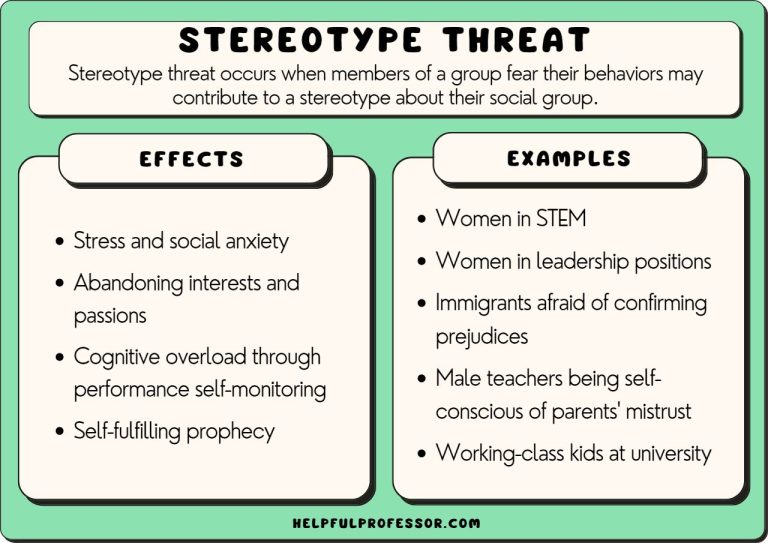
The Fight to Destigmatize Mental Health Care in the Defense Industry
The fight to destigmatize mental health care in the defense industry is a crucial battle for the well-being of our service members and their families. The unique stressors faced by those who serve, from combat exposure to operational demands, can have a profound impact on mental health.
Yet, the stigma surrounding mental health care in the military often prevents individuals from seeking help, leading to devastating consequences.
This stigma stems from a deeply ingrained culture of stoicism and the fear of appearing weak. It’s a culture that has historically discouraged individuals from acknowledging their mental health struggles, leading to a dangerous silence around mental health issues.
This silence can have devastating consequences, delaying treatment, hindering recovery, and increasing the risk of suicide.
The Prevalence of Mental Health Issues in the Defense Industry
The defense industry, encompassing military personnel and defense contractors, faces unique stressors that significantly contribute to the prevalence of mental health issues. Individuals in this field are often exposed to traumatic experiences, demanding operational environments, and prolonged deployments, leading to a heightened risk of developing mental health conditions.
The Impact of Stressors on Mental Health
The defense industry presents a unique set of stressors that can negatively impact mental health. These stressors include:
- Combat Exposure:Direct exposure to combat situations can lead to post-traumatic stress disorder (PTSD), anxiety, and depression. The experience of witnessing violence, death, and injury can have lasting psychological effects.
- Deployment:Frequent and prolonged deployments can disrupt family life, social connections, and routines, leading to feelings of isolation, stress, and anxiety. The constant threat of danger and the challenges of adapting to different cultures and environments can also contribute to mental health issues.
- Operational Demands:High-pressure work environments, demanding schedules, and the constant need to be alert and ready for action can lead to burnout, stress, and sleep deprivation. The constant exposure to danger and the responsibility for the safety of others can also contribute to anxiety and depression.
Prevalence of Mental Health Conditions
Statistics highlight the alarming prevalence of mental health conditions within the defense industry:
- Post-traumatic Stress Disorder (PTSD):According to the National Center for PTSD, approximately 13-20% of veterans who served in Operation Iraqi Freedom and Operation Enduring Freedom have PTSD.
- Anxiety and Depression:Studies have shown that military personnel are at a higher risk of developing anxiety and depression compared to the general population. The prevalence of anxiety disorders among active-duty military personnel is estimated to be around 12%, while depression affects approximately 10-20%.
Impact of Mental Health Issues
Mental health issues in the defense industry have a profound impact on individuals, families, and professional performance:
- Individual Well-being:Mental health conditions can lead to impaired cognitive function, emotional distress, and physical health problems. Individuals may experience difficulty concentrating, making decisions, and maintaining healthy relationships.
- Family Life:The impact of mental health issues can extend to families, causing strain on relationships, financial burdens, and emotional distress. Families may struggle to cope with the changes in behavior, communication, and emotional well-being of their loved ones.
- Professional Performance:Mental health issues can affect job performance, leading to decreased productivity, increased errors, and difficulty maintaining focus. In extreme cases, individuals may experience difficulty completing their duties or even require medical leave.
The Stigma Surrounding Mental Health in the Defense Industry
The defense industry, a field often associated with strength, resilience, and unwavering resolve, faces a significant challenge: the stigma surrounding mental health. This stigma, deeply rooted in historical and cultural factors, discourages individuals from seeking help and creates a culture of silence around mental health issues.
It’s encouraging to see the growing awareness of mental health needs in the defense industry, a field often associated with stoicism and suppression of emotions. It’s a long road to break down the stigma, but we’re making progress. The recent news that the DOJ has internal campaign emails over the fake electors scheme to present to a grand jury doj has internal campaign emails over fake electors scheme to present to grand jury , while a different topic, reminds us that open communication and transparency are crucial in any sphere.
Just as the military is learning to prioritize mental well-being, our legal system must continue to uphold justice and accountability.
This silence can have devastating consequences, impacting the well-being of service members, veterans, and their families.
Historical and Cultural Factors Contributing to Stigma
Historically, the military has emphasized stoicism, self-reliance, and the suppression of emotions as essential qualities for success. This culture, deeply ingrained in the defense industry, has created a perception that seeking mental health care is a sign of weakness, vulnerability, and a threat to one’s career.
This perception is further reinforced by the traditional “tough guy” culture, where expressing vulnerability or seeking help is often met with disapproval, ridicule, or even ostracism.
Breaking down the stigma around mental health in the defense industry is crucial. It’s about creating a culture where seeking help is seen as a sign of strength, not weakness. This is especially important when facing economic pressures, as understanding the psychology of inflation can be vital.
Leaders who possess emotional intelligence, like those described in this article on how great leaders use emotional intelligence to beat the psychology of inflation , can guide their teams through challenging times, fostering resilience and well-being. This approach ultimately benefits the entire defense community, promoting a healthier and more productive environment.
The “Tough Guy” Culture and Fear of Appearing Weak
The “tough guy” culture, prevalent in many military and defense settings, fosters an environment where individuals are expected to suppress their emotions, bottle up their struggles, and maintain a facade of strength. This culture discourages individuals from seeking help, as they fear being perceived as weak, incapable, or unfit for service.
It’s a tough conversation to have, but the fight to destigmatize mental health care in the defense industry is vital. We need to create a culture where seeking help isn’t seen as a weakness, but rather a sign of strength.
Maybe a good way to start is with a little self-care – a refreshing tropical boozy smoothie, like this mango peach edition , might just be the perfect way to unwind after a long day. Ultimately, fostering a supportive environment where individuals feel comfortable prioritizing their mental well-being is essential for the well-being of our entire defense community.
The fear of being labeled as “damaged goods” or losing their position can be a powerful deterrent, leading individuals to suffer in silence.
Consequences of Stigma
The stigma surrounding mental health in the defense industry has several detrimental consequences:
- Delayed Treatment:Individuals may delay seeking help due to fear of judgment, leading to worsening symptoms and potential long-term health issues.
- Reluctance to Disclose Symptoms:The fear of stigma can prevent individuals from disclosing their mental health concerns to supervisors, colleagues, or even family members, making it difficult to access support and treatment.
- Increased Risk of Suicide:The stigma associated with mental health can lead to feelings of isolation, shame, and hopelessness, increasing the risk of suicidal thoughts and behaviors. A 2019 study by the U.S. Department of Veterans Affairs found that suicide rates among veterans were significantly higher than those in the general population.
The Impact of Stigma on Access to Care

The stigma surrounding mental health in the defense industry creates a significant barrier to accessing care. Individuals may be reluctant to seek help due to fear of judgment, concerns about confidentiality, and a lack of awareness about available resources. This stigma can have a detrimental impact on the well-being of service members, veterans, and their families.
Fear of Judgment and Negative Consequences
The fear of being perceived as weak or incompetent can prevent individuals from seeking help for mental health issues. This fear is often rooted in the traditional culture of the defense industry, which emphasizes strength, resilience, and stoicism. Individuals may worry that seeking help will negatively impact their career prospects, their reputation among peers, or their ability to perform their duties.
Concerns about Confidentiality
Concerns about confidentiality can also deter individuals from seeking mental health services. They may worry that their personal information will be shared with superiors, colleagues, or other unauthorized individuals. This fear can be particularly acute in a hierarchical environment where there is a high degree of scrutiny and accountability.
Lack of Awareness about Available Resources
Many individuals in the defense industry may not be aware of the mental health resources available to them. This lack of awareness can be attributed to a number of factors, including limited access to information, inadequate training on mental health issues, and a general lack of emphasis on mental health within the organizational culture.
Barriers to Care
Stigma is only one aspect of the problem. Several other barriers can further hinder access to mental health care. These include:
- Limited Availability of Mental Health Professionals: In some areas, there may be a shortage of mental health professionals, especially those with specialized training in addressing the unique needs of military personnel and veterans.
- Long Wait Times: Individuals seeking mental health services may face long wait times for appointments, which can be discouraging and lead to delays in receiving care.
- Financial Constraints: Some individuals may be unable to afford mental health services, particularly if they are not covered by their insurance plan or if they have to travel long distances to access care.
The Role of Leadership and Organizational Culture
Leadership plays a crucial role in promoting a supportive environment for mental health care. By openly discussing mental health issues, providing training on mental health awareness, and fostering a culture of respect and understanding, leaders can help to reduce stigma and encourage individuals to seek help when needed.
“Leaders who demonstrate their own commitment to mental health care can set a positive example for others and create a more supportive environment for those who need help.”
Organizational culture also plays a vital role. Organizations can promote a culture of mental health by providing resources, training, and support programs for employees. This can include:
- Developing comprehensive mental health policies and procedures
- Offering mental health services on-site or through partnerships with local providers
- Providing training to all employees on mental health awareness and how to support colleagues
- Creating a safe and confidential space for individuals to seek help
Strategies to Destigmatize Mental Health Care
The defense industry has a long history of prioritizing physical fitness and resilience, often overlooking the importance of mental well-being. This can lead to a culture of silence and shame around mental health issues, hindering individuals from seeking help. Breaking down these barriers requires a multifaceted approach, encompassing education, support, leadership, and policy changes.
Education and Awareness Campaigns
Raising awareness about mental health issues and the importance of seeking help is crucial for destigmatization. Education campaigns can provide information about common mental health conditions, symptoms, and available resources.
“The goal of education and awareness campaigns is to dispel myths, increase understanding, and foster a more supportive environment.”
Examples of successful initiatives include:
- The U.S. Department of Defense’s “Real Warriors” campaign:This campaign uses personal stories of service members who have overcome mental health challenges to promote help-seeking behavior.
- The “It’s OK to Not Be OK” campaign:Launched by the Australian Defence Force, this campaign encourages open conversations about mental health and provides resources for seeking help.
Peer Support Programs, The fight to destigmatize mental health care in the defense industry
Peer support programs connect individuals who have experienced similar challenges, providing a safe space for sharing experiences, offering advice, and building a sense of community.
“Peer support programs are particularly effective in breaking down stigma because they demonstrate that mental health issues are not unique and that individuals are not alone in their struggles.”
Examples of successful initiatives include:
- The “Combat Stress Control” program:This program pairs service members with trained peers who have experienced combat stress, providing support and guidance during their recovery.
- The “Veteran Peer Support Network” (VPSN):The VPSN offers a network of trained veterans who provide support and guidance to other veterans experiencing mental health challenges.
Leadership Training and Mentorship
Leaders play a crucial role in fostering a culture of mental health awareness and support. Leadership training programs can equip leaders with the skills and knowledge to create a more inclusive and supportive environment for their teams.
“Effective leadership training should focus on building empathy, promoting open communication, and demonstrating a commitment to mental well-being.”
Examples of successful initiatives include:
- The “Mental Health First Aid” program:This program trains individuals to identify, understand, and respond to signs of mental health issues in others.
- The “Leaders as Mentors” program:This program pairs senior leaders with junior service members, providing guidance and support on mental health issues.
Policy Changes and Resource Allocation
Policy changes and resource allocation are essential for ensuring access to mental health care and creating a supportive environment. This includes:
- Expanding access to mental health services:This includes increasing the number of mental health professionals available to service members and their families.
- Removing barriers to care:This includes reducing stigma, improving access to confidential care, and addressing insurance coverage issues.
- Investing in research and prevention:This includes funding research into the causes and treatments of mental health conditions, as well as developing preventative programs.
The Role of Technology in Destigmatizing Mental Health Care: The Fight To Destigmatize Mental Health Care In The Defense Industry
Technology has emerged as a powerful tool in the fight to destigmatize mental health care, particularly within the defense industry. By offering new ways to access support and breaking down barriers to traditional care, technology can help create a more inclusive and supportive environment for those who need it.
Telehealth Platforms and Mobile Applications
Telehealth platforms and mobile applications have the potential to significantly improve access to mental health care and reduce stigma. These technologies allow individuals to connect with mental health professionals remotely, eliminating the need for face-to-face appointments. This is particularly beneficial for service members stationed in remote locations or those who may feel uncomfortable seeking help in person.
- Increased Accessibility:Telehealth platforms provide a convenient and accessible way to receive mental health care, breaking down geographical barriers and reducing the need for travel.
- Enhanced Privacy and Confidentiality:Remote therapy sessions offer greater privacy and confidentiality, allowing individuals to seek help without fear of judgment or stigma.
- Reduced Wait Times:Telehealth platforms can reduce wait times for appointments, making it easier for individuals to access the care they need promptly.
Innovative Technologies for Anonymous and Confidential Screening and Support
Several innovative technologies can facilitate anonymous and confidential mental health screening, support groups, and therapy sessions. These technologies help address concerns about privacy and confidentiality, encouraging individuals to seek help without fear of judgment or repercussions.
- Anonymous Screening Tools:Online self-assessment tools can provide individuals with a confidential way to screen for mental health conditions, allowing them to identify potential issues without disclosing their identity.
- Confidential Support Groups:Online platforms can facilitate confidential support groups, connecting individuals with others who share similar experiences and providing a safe space for them to connect and share their feelings.
- Virtual Reality Therapy:Virtual reality (VR) therapy can create immersive and engaging experiences, allowing individuals to practice coping skills and manage symptoms in a safe and controlled environment.
Outcome Summary
Breaking down these barriers requires a multi-pronged approach. We need to continue educating service members and their families about mental health, promoting open dialogue, and fostering a culture of support. By investing in accessible mental health resources, training leaders to create inclusive environments, and embracing innovative technologies, we can create a future where seeking mental health care is not just accepted, but encouraged.
It’s time to shatter the stigma and ensure that every member of the defense community has the support they need to thrive.






